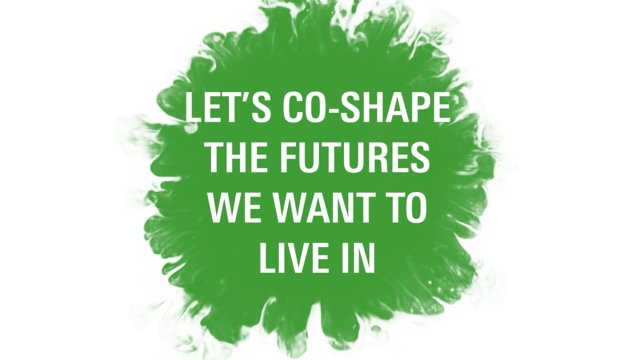
DesignLab University of Twente has been establishing new connections since 2014: students and researchers joining forces with citizens, governments and the industry, to design opportunities for challenges within and beyond the borders of health, climate and safety. When working with and at DesignLab, different worldviews are equally heard, people become empowered and first tangible steps are made. Dear Future us: let’s feel, think and act when it comes to today’s challenges and potentially those of our next generations.
- 'Dear Future me' [February-June 2024]
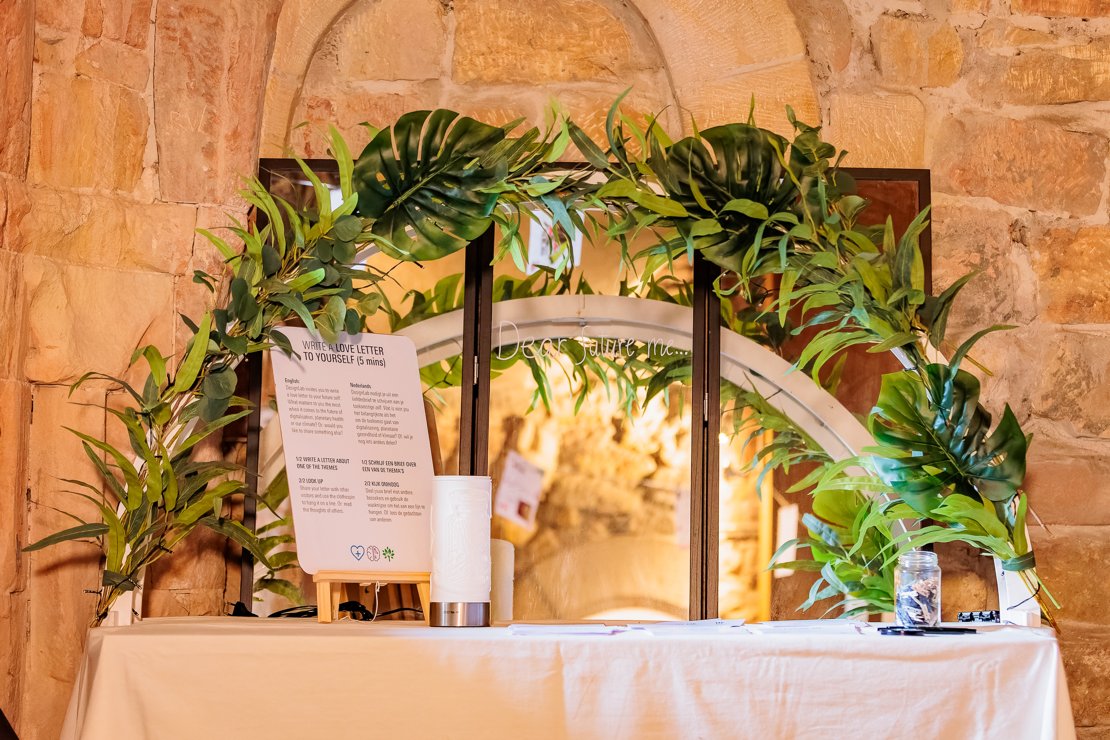
Dear future me... This is what keeps me up at night
Together with different stakeholders, DesignLab focuses on the societal themes Digital Society, Health Innovation and Safety. In UTs research and education, projects, workshops and all the events organised by DesignLab and the UT community. But what do they actually mean to us personally, as individuals? People were invited to write a love letter to themselves regarding these themes, and share these with others by hanging it on a line.
If I become the doctor of the future, I can
make a special shoe that heals your broken ankle in 10 seconds
What is important to me while co-shaping healthy futures for all...
Activism vs passivism
How to promote sustainable and constructive impactful activism? Sometimes I get the feeling that society is moving towards passivism and apathy.
When I think about our futures and planetary health, I care about...
equality. Everyone having the same opportunities to a healthy and safe "environment".
There is something that I would like to share...
Create don't consume
Repair don't replace
What matters to me when I think about futures and technology...
It is difficult to predict how technology will change throughout the years, but we should be open to its possibilities but always without forgetting about what makes us humans, what makes us special.
DesignLab is a collaborative eco-system
When you come to DesignLab, you see how important it is to have a physical space to meet new people, to (re)connect with students and colleagues you know and to learn from different generations. In the spring, primary school children, innovation-minded students, DreamTeamers, companies and (potential) PhDs attended events at DesignLab, or simply took a visit. Already in the first week, over 20 meters of letters were written, drawn or made using collages.
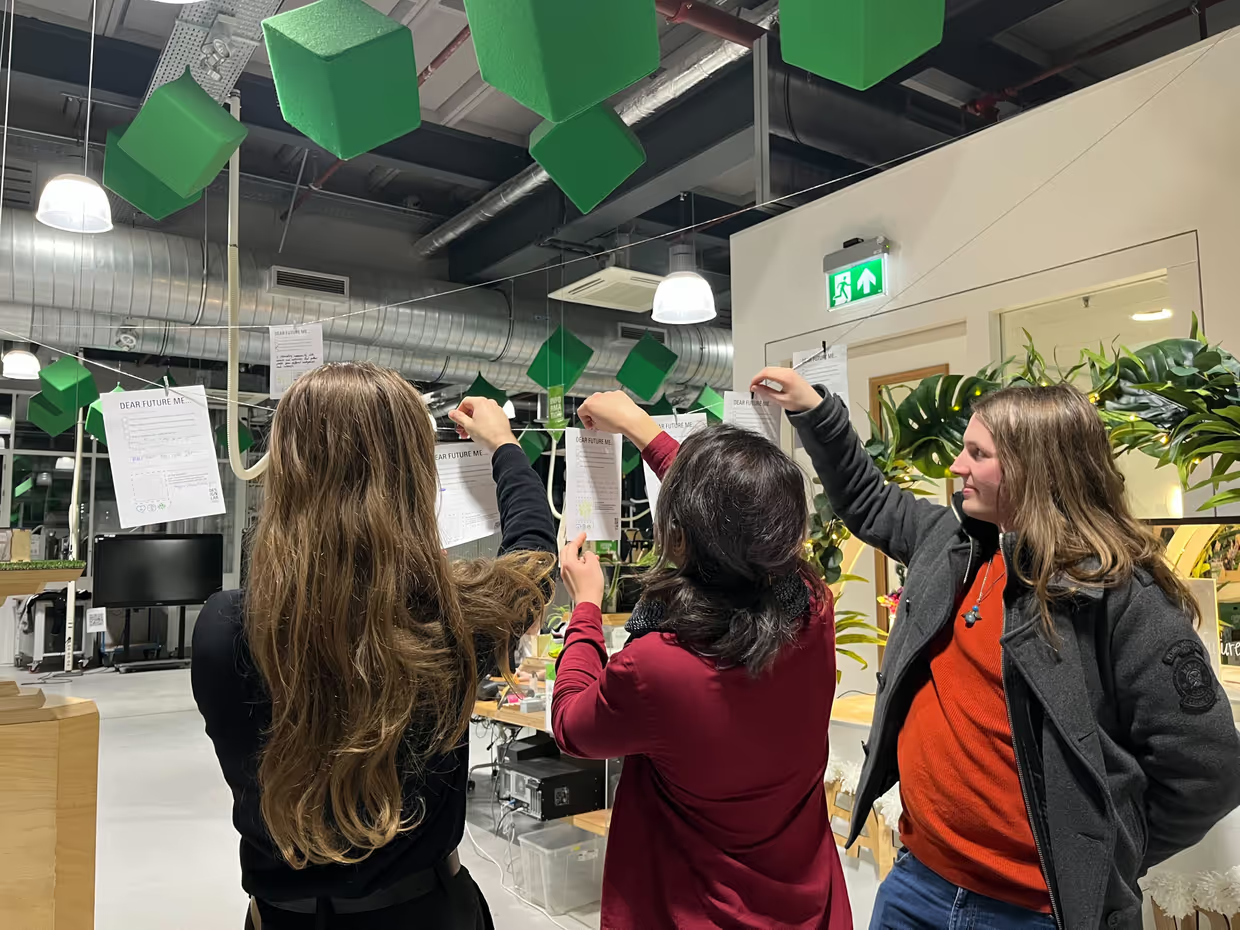
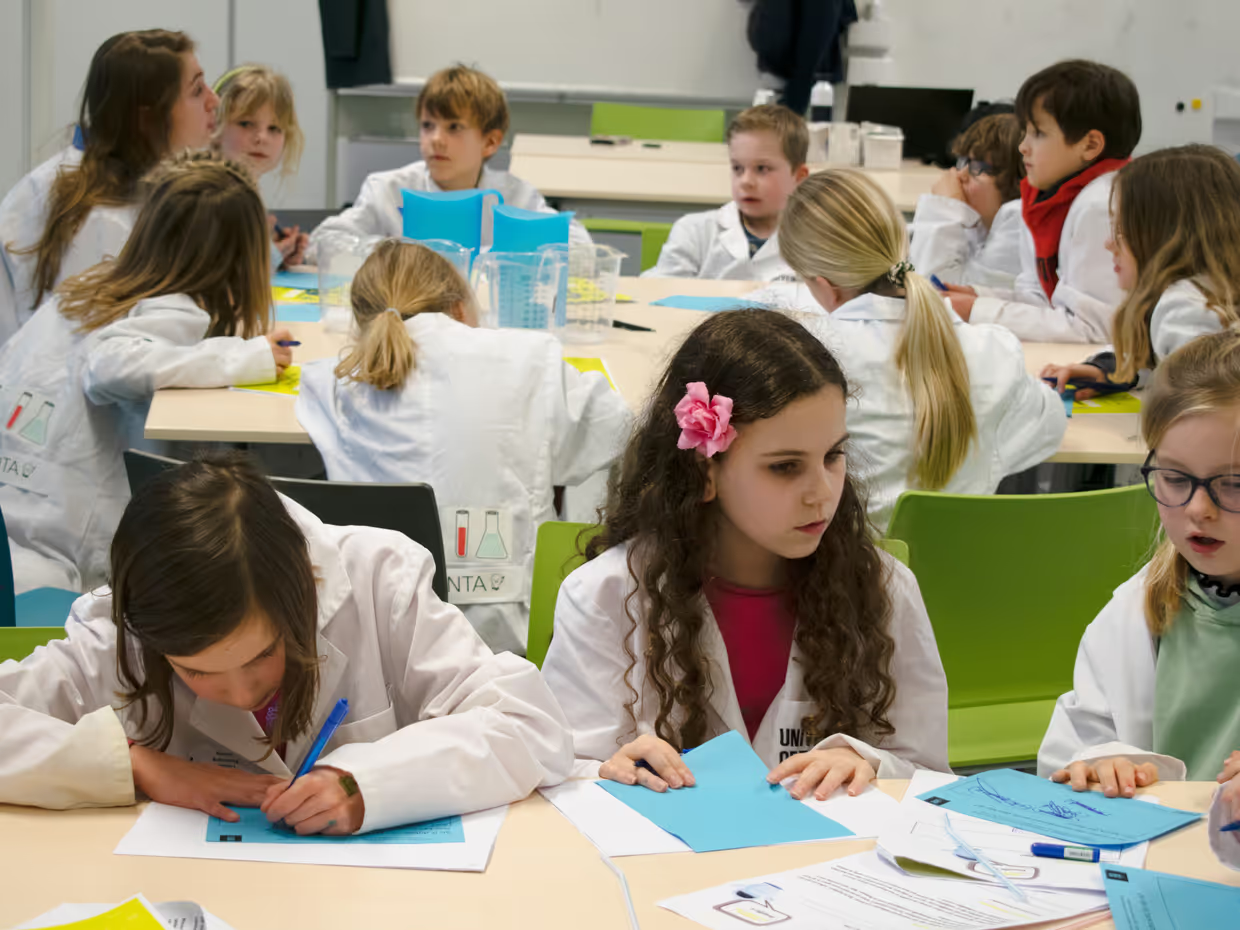
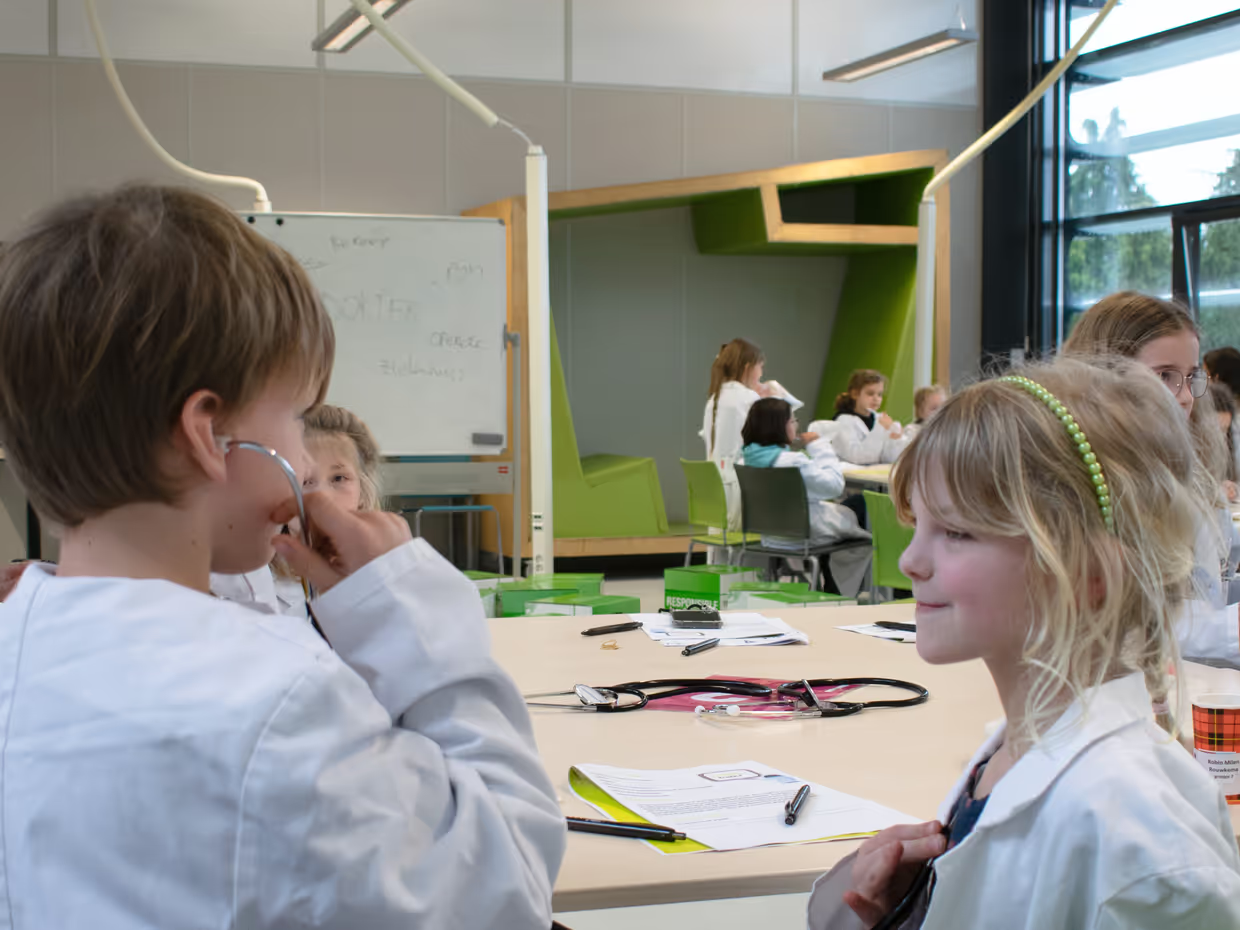
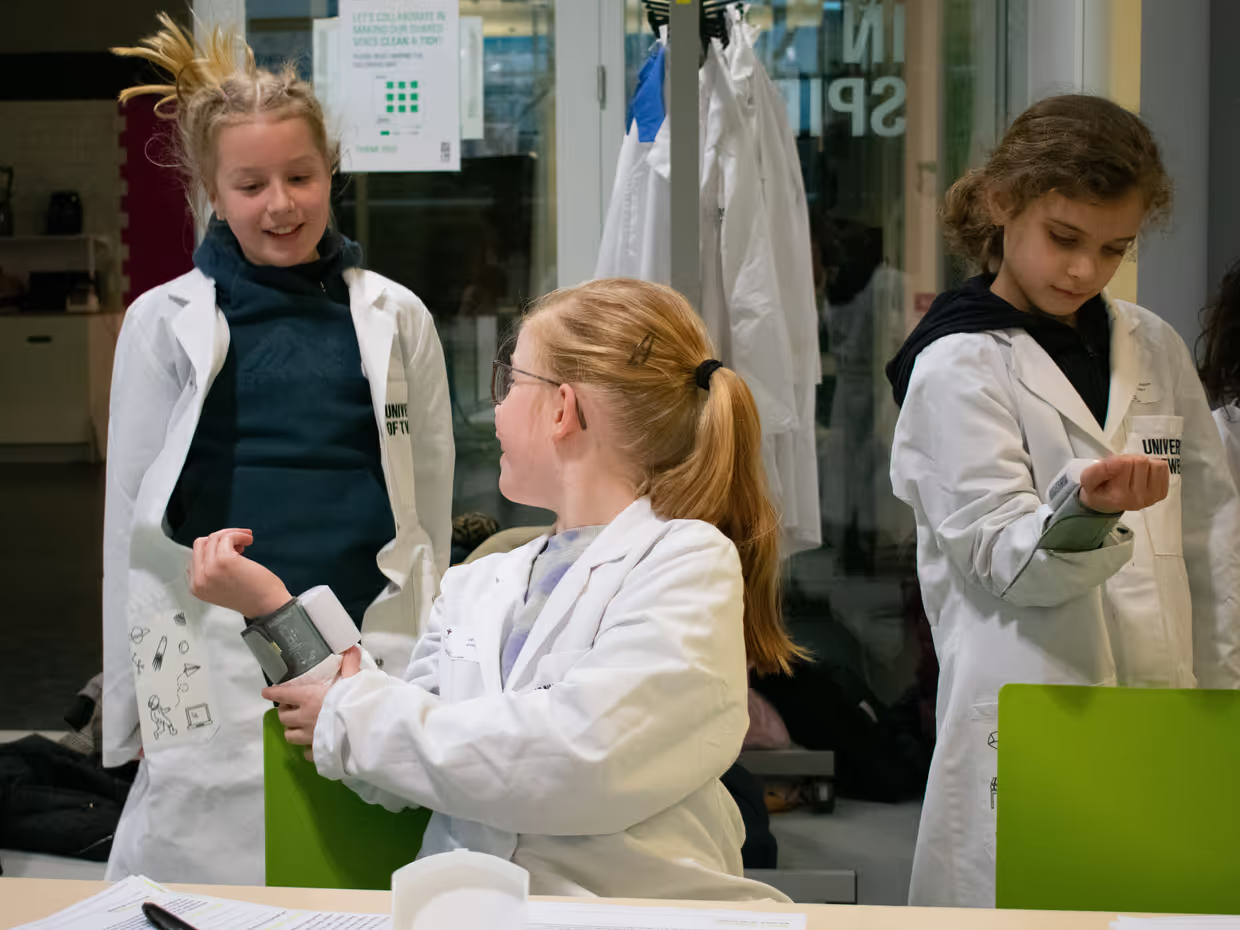
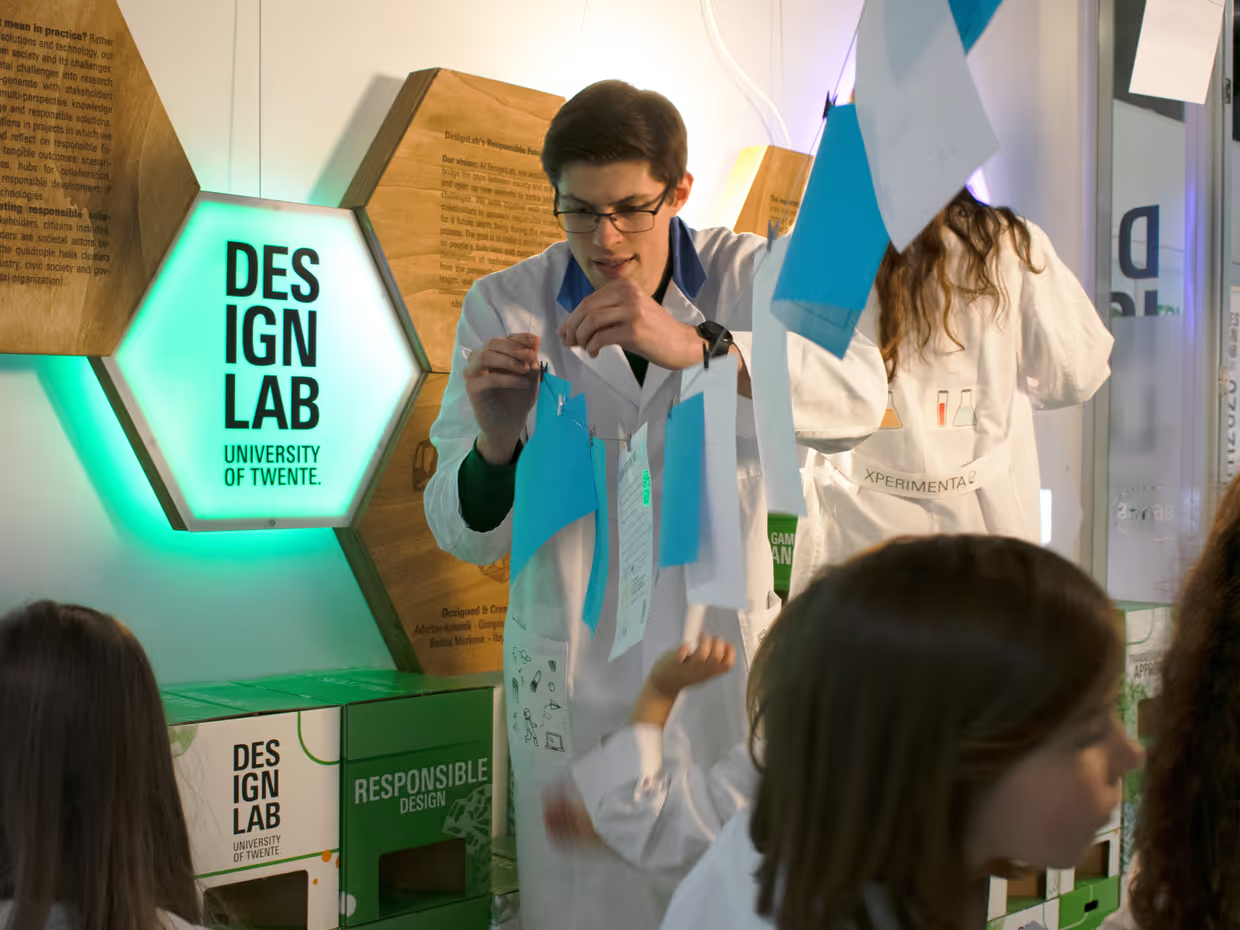
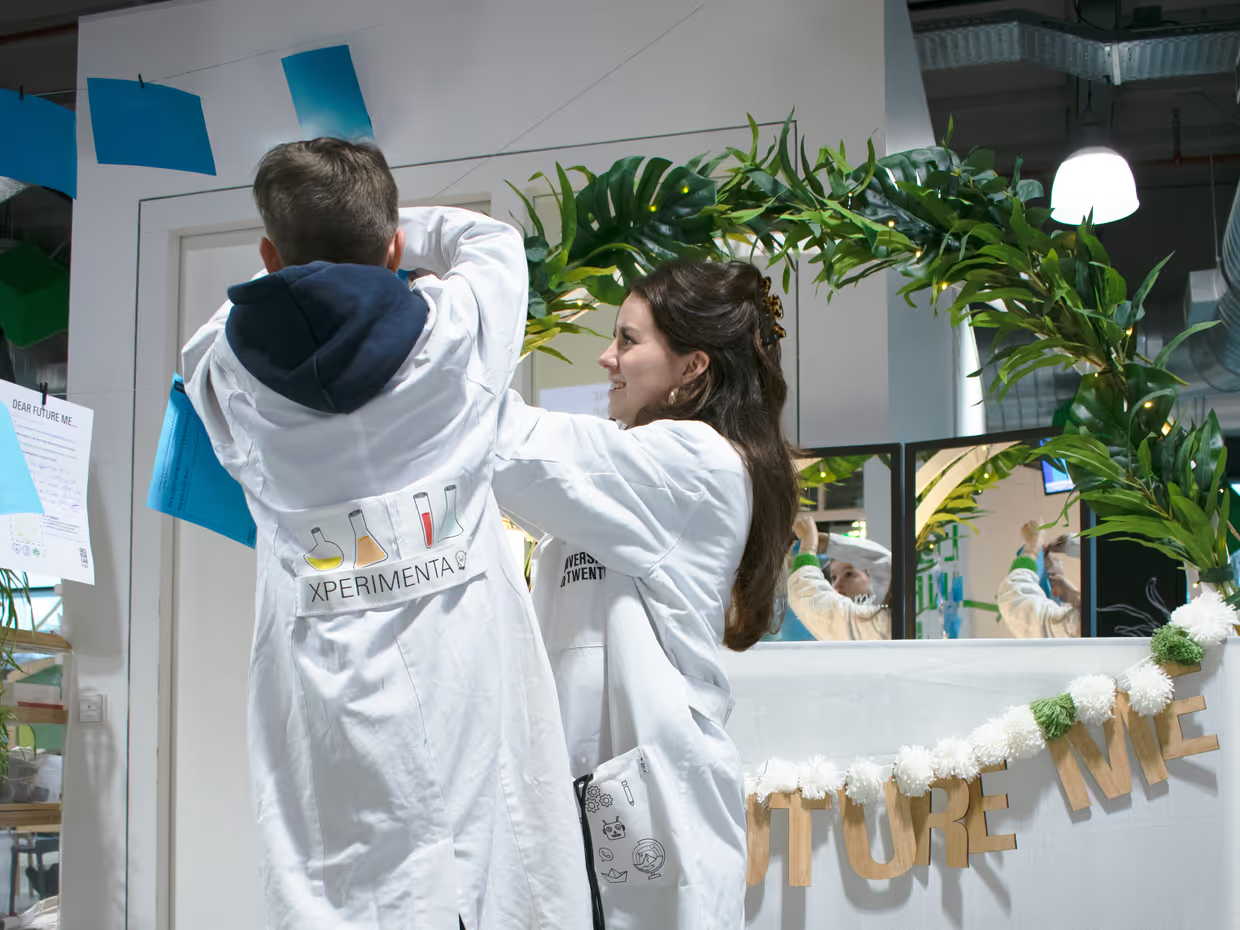
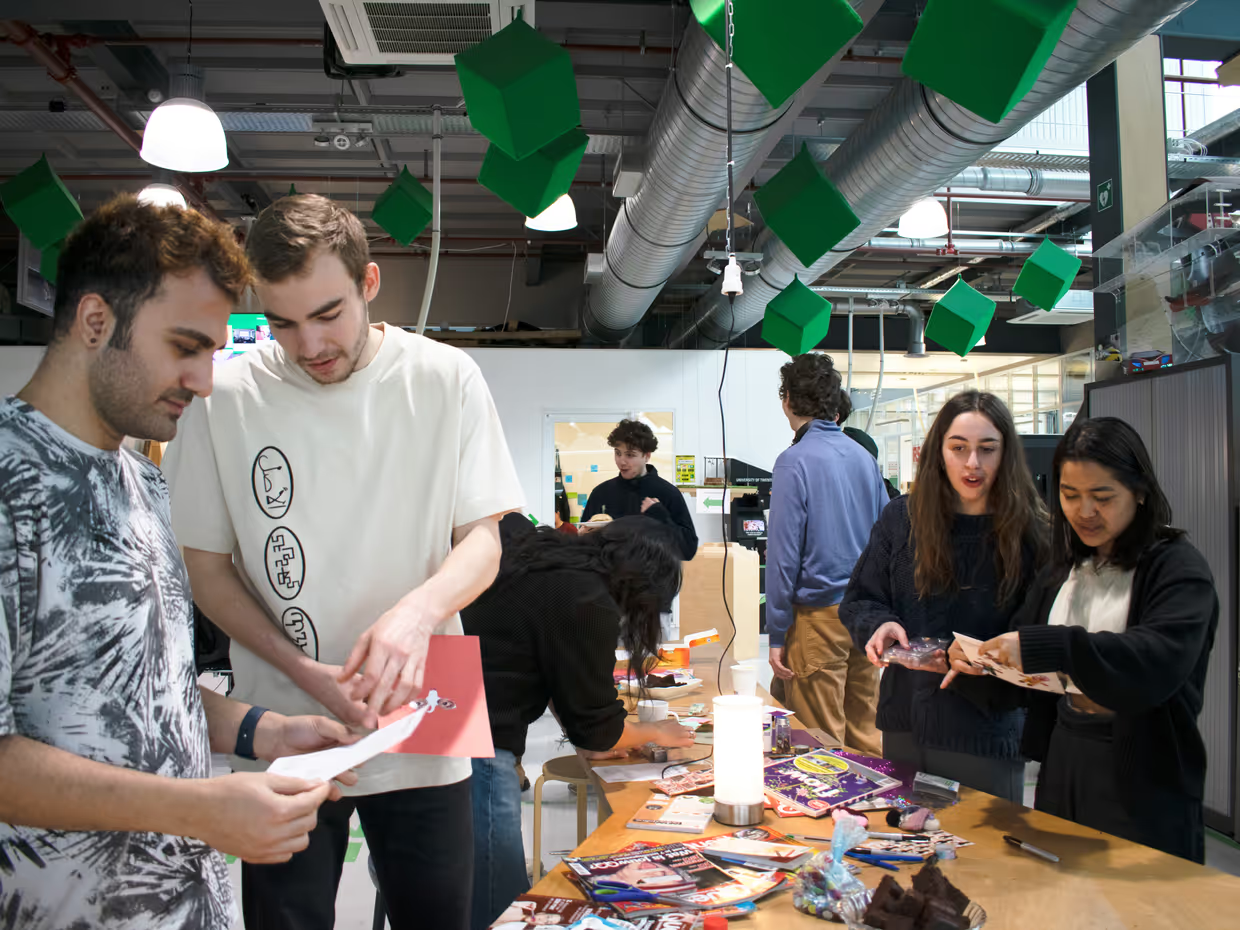
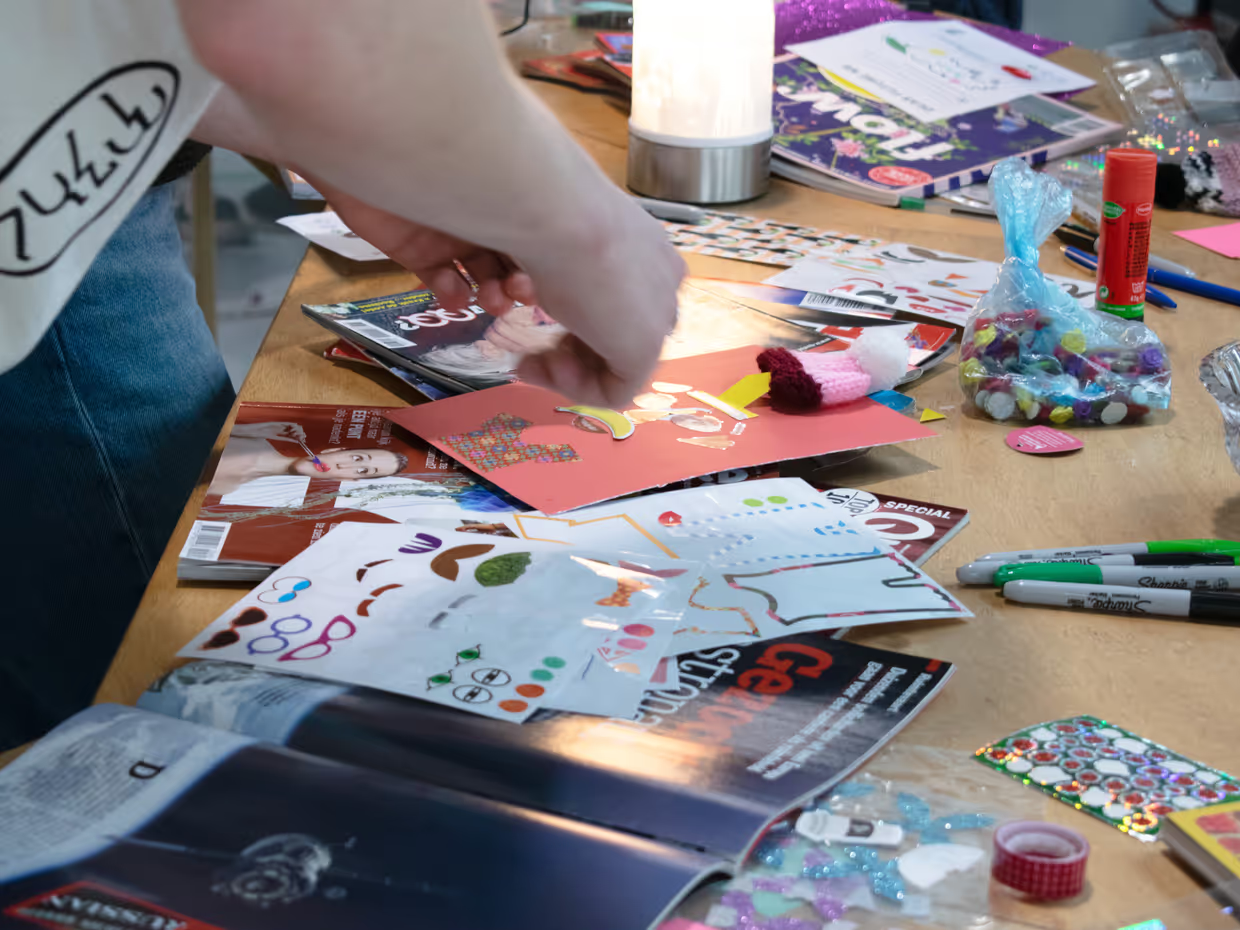
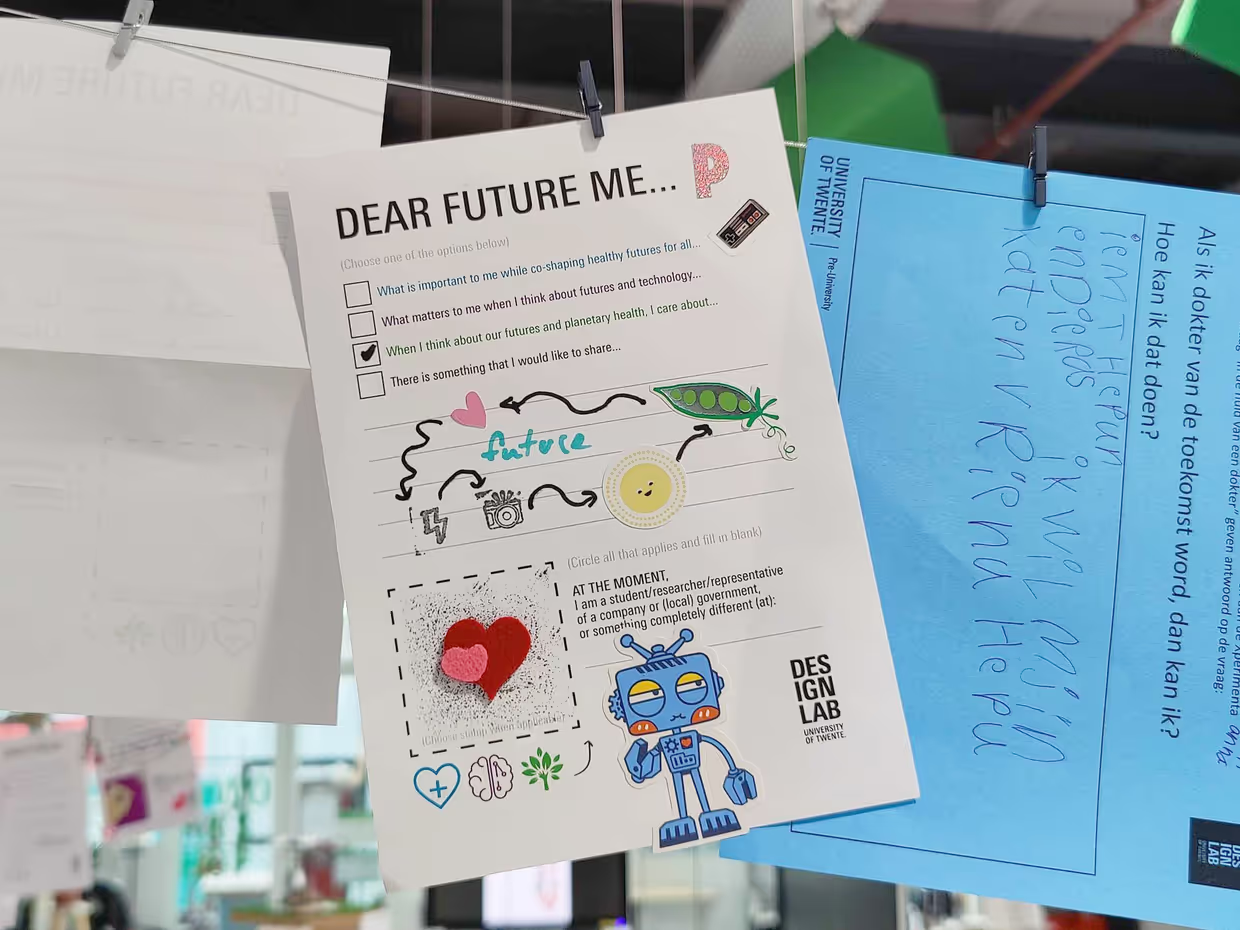 Meet & Greet UIF TwenteOur family members of University Innovation Fellows (UIF) Twente invited the UT community to meet the love of their lives, friends or 'simply' other inspiring people. Sharing personal letters were truly conversation starters!Learn more about UIFThe doctor of the future | Pre-UniversityChildren aged between 7 and 10 experienced what it is to be a doctor. They learned the definition of sick tissue and got familiar with tools like a blood pressure monitor and a stethoscope. What if they could be the doctor of the future?The doctor of the future | Pre-UniversityChildren aged between 7 and 10 experienced what it is to be a doctor. They learned the definition of sick tissue and got familiar with tools like a blood pressure monitor and a stethoscope. What if they could be the doctor of the future?The doctor of the future | Pre-UniversityChildren aged between 7 and 10 experienced what it is to be a doctor. They learned the definition of sick tissue and got familiar with tools like a blood pressure monitor and a stethoscope. What if they could be the doctor of the future?The doctor of the future | Pre-UniversityChildren aged between 7 and 10 experienced what it is to be a doctor. They learned the definition of sick tissue and got familiar with tools like a blood pressure monitor and a stethoscope. What if they could be the doctor of the future?The doctor of the future | Pre-UChildren aged between 7 and 10 experienced what it is to be a doctor. They learned the definition of sick tissue and got familiar with tools like a blood pressure monitor and a stethoscope. What if they could be the doctor of the future?Community | DreamTeamSometimes you do not need words to express your thoughts. That is what the community team of the DreamTeam were thinking. Our student assistents brought colour, shapes and drawings to the line of love letters.
Meet & Greet UIF TwenteOur family members of University Innovation Fellows (UIF) Twente invited the UT community to meet the love of their lives, friends or 'simply' other inspiring people. Sharing personal letters were truly conversation starters!Learn more about UIFThe doctor of the future | Pre-UniversityChildren aged between 7 and 10 experienced what it is to be a doctor. They learned the definition of sick tissue and got familiar with tools like a blood pressure monitor and a stethoscope. What if they could be the doctor of the future?The doctor of the future | Pre-UniversityChildren aged between 7 and 10 experienced what it is to be a doctor. They learned the definition of sick tissue and got familiar with tools like a blood pressure monitor and a stethoscope. What if they could be the doctor of the future?The doctor of the future | Pre-UniversityChildren aged between 7 and 10 experienced what it is to be a doctor. They learned the definition of sick tissue and got familiar with tools like a blood pressure monitor and a stethoscope. What if they could be the doctor of the future?The doctor of the future | Pre-UniversityChildren aged between 7 and 10 experienced what it is to be a doctor. They learned the definition of sick tissue and got familiar with tools like a blood pressure monitor and a stethoscope. What if they could be the doctor of the future?The doctor of the future | Pre-UChildren aged between 7 and 10 experienced what it is to be a doctor. They learned the definition of sick tissue and got familiar with tools like a blood pressure monitor and a stethoscope. What if they could be the doctor of the future?Community | DreamTeamSometimes you do not need words to express your thoughts. That is what the community team of the DreamTeam were thinking. Our student assistents brought colour, shapes and drawings to the line of love letters.Dutch Innovation Days
At the end of May, Enschede visitors and tourists were invited to open the mysterious door in the hallway of the 'Grote Kerk'. The staircase was lit up by visualised love letters, made by people that had gone before them. Upstairs, the space felt like a wedding chapel, where they could be inspired by even more stories, take some time to reflect and write and add their own.
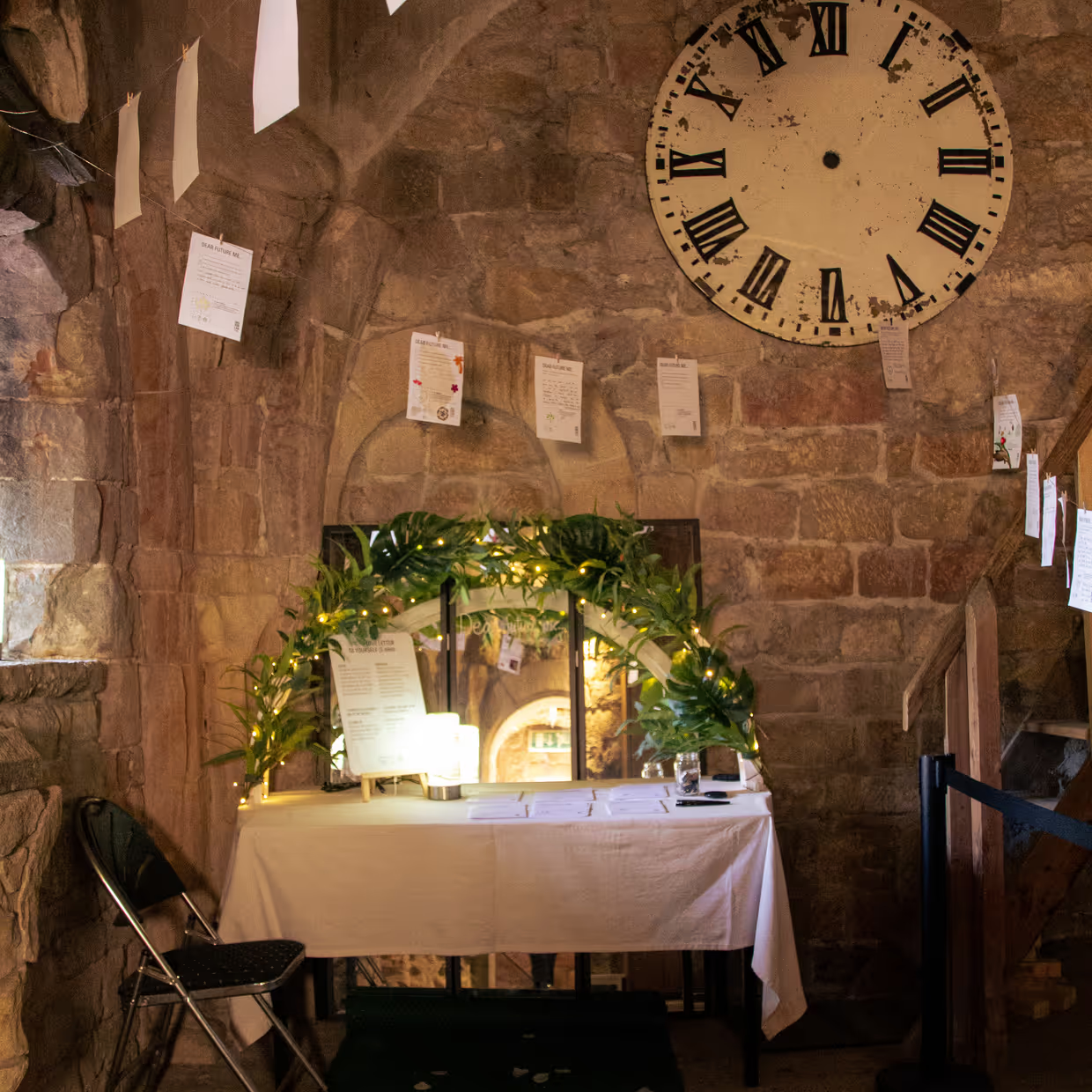
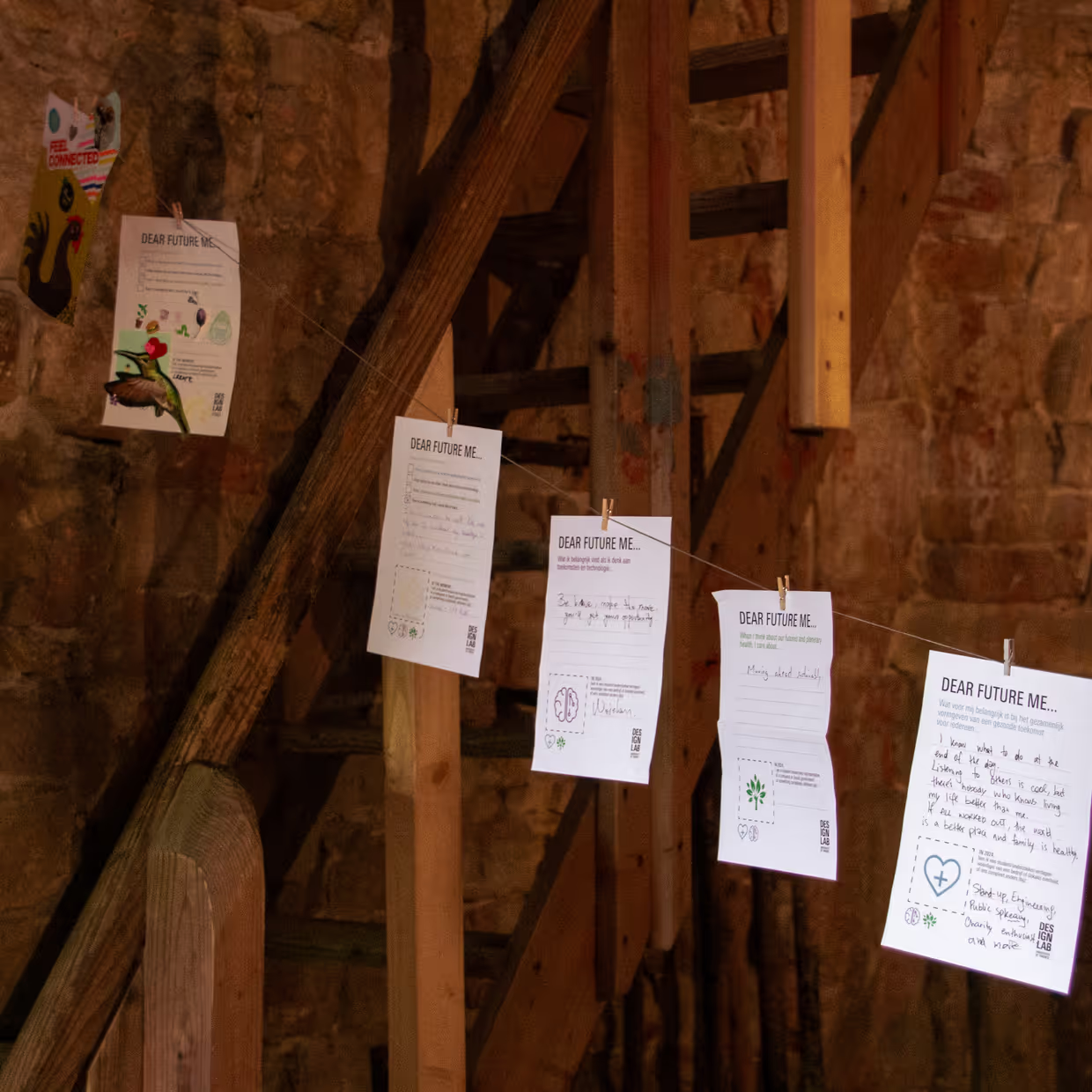
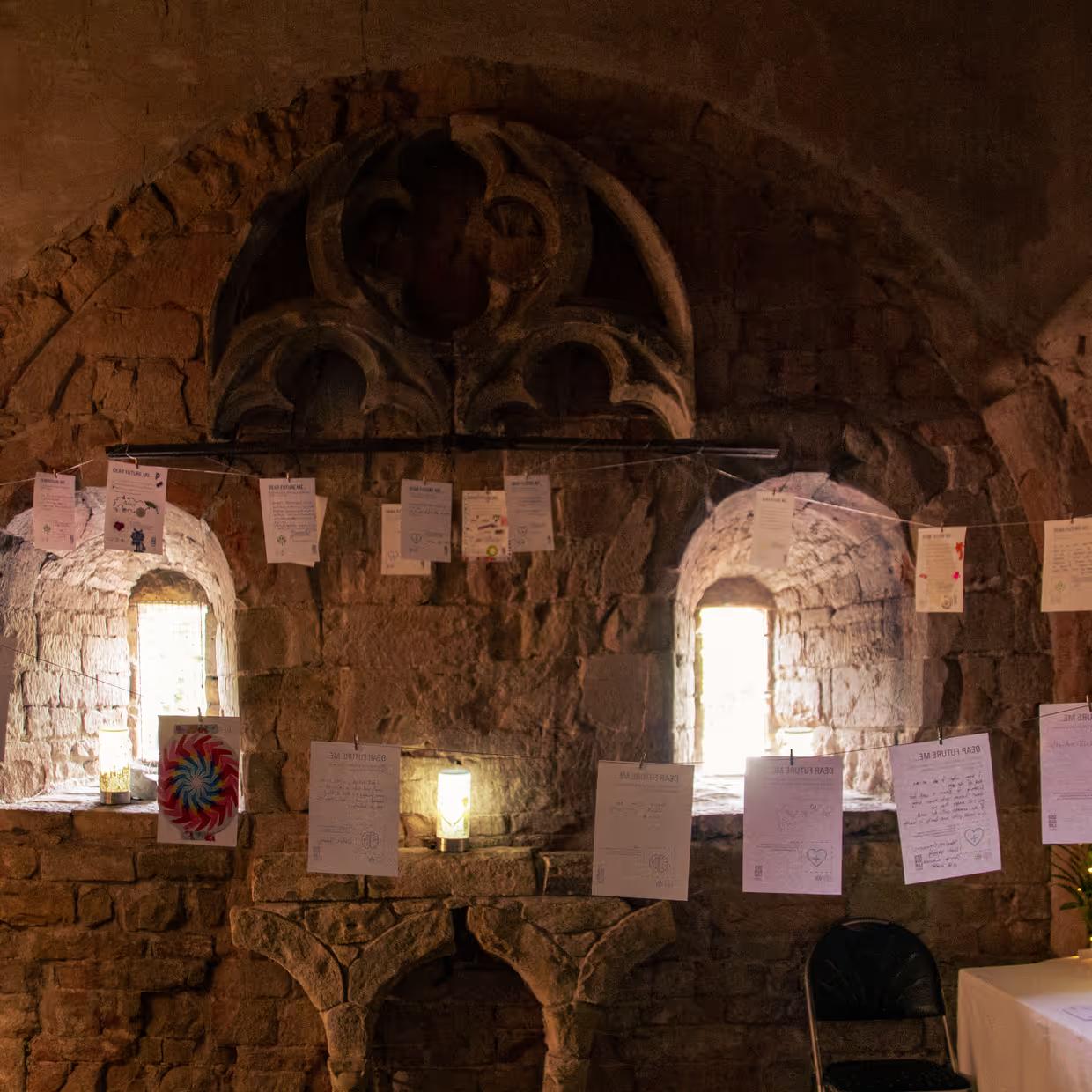
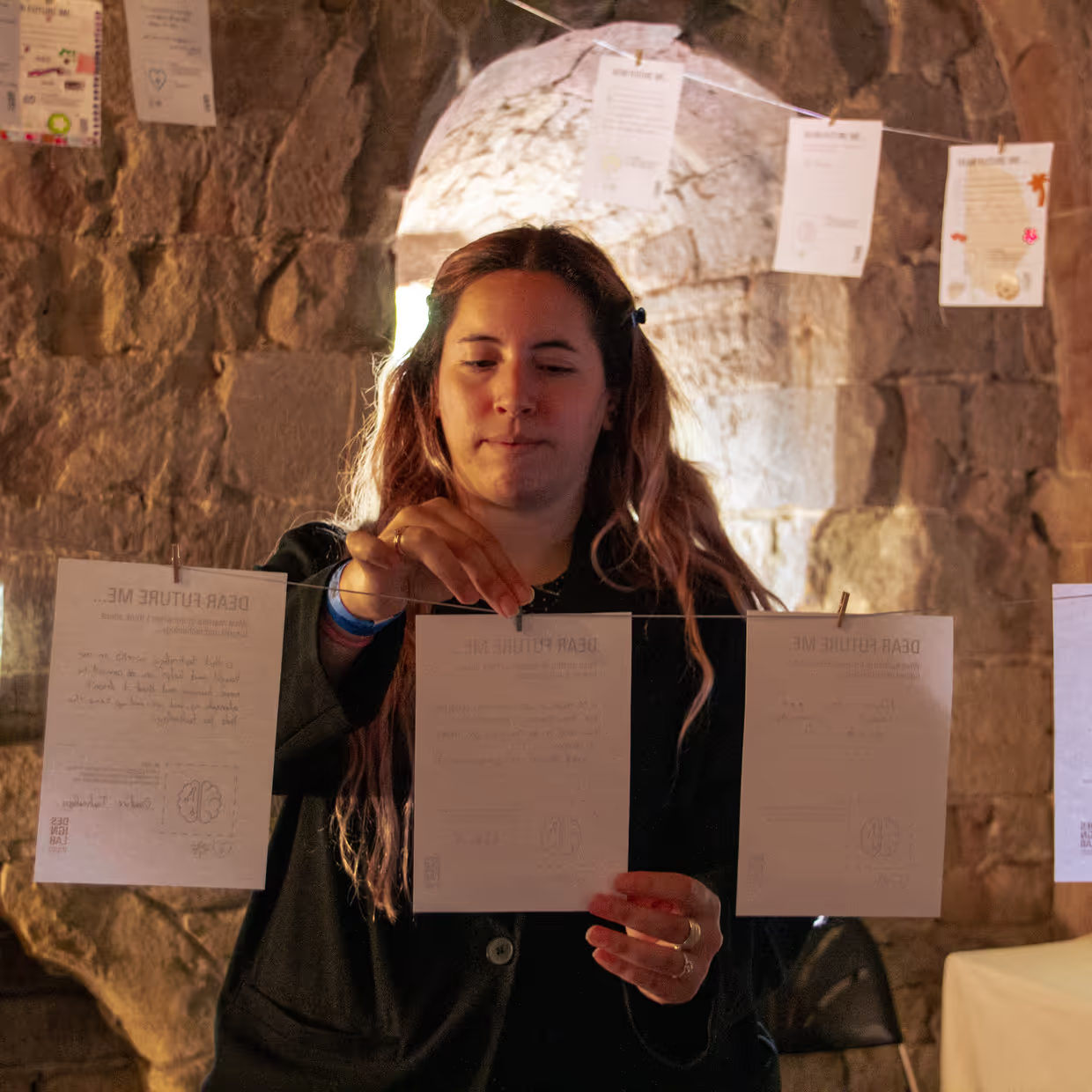
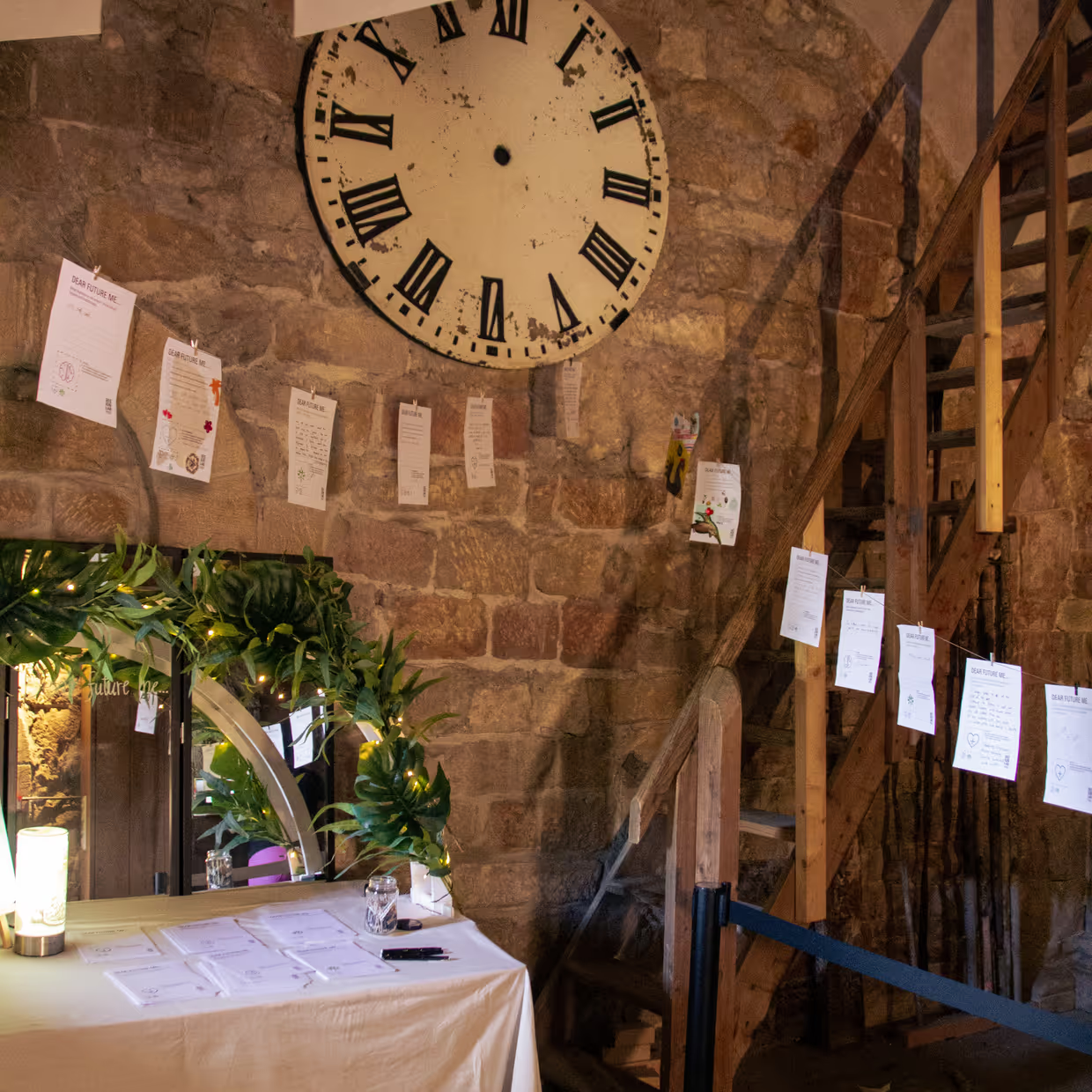
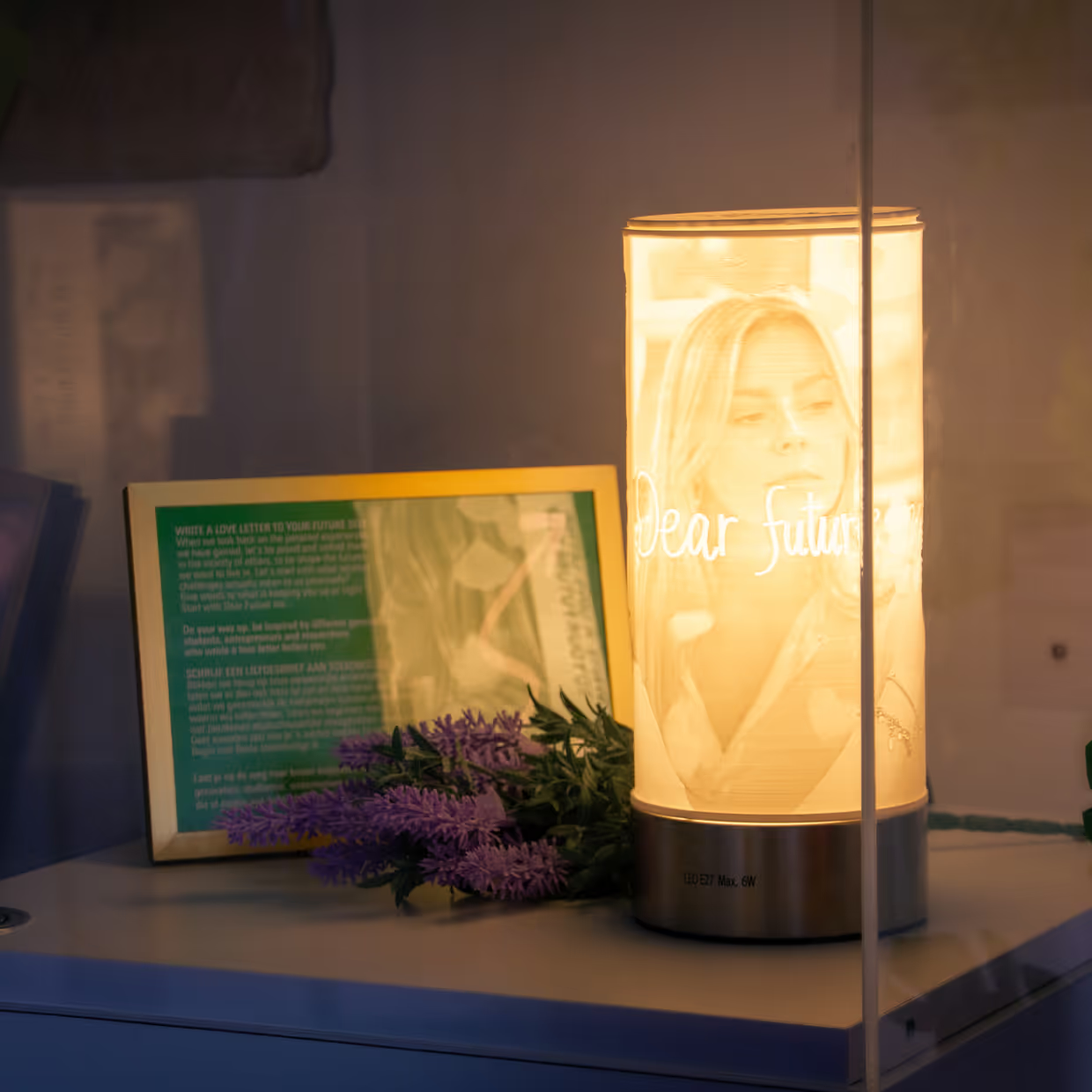 Photo: Cristina IonasPhoto: Cristina IonasPhoto: Cristina IonasPhoto: Cristina IonasPhoto: Cristina IonasPhoto: Cristina Ionas
Photo: Cristina IonasPhoto: Cristina IonasPhoto: Cristina IonasPhoto: Cristina IonasPhoto: Cristina IonasPhoto: Cristina IonasDear Future me: honouring society's views
The beautiful lamps with visualised love letters are 3D-printed and made by Lithos: a start-up company from DreamTeamer Leon Peters and his business partner Kaspar Rothenfusser. After the exhibition during the Opening Academic Year at Wilmink theatre, you will find them in DesignLab.
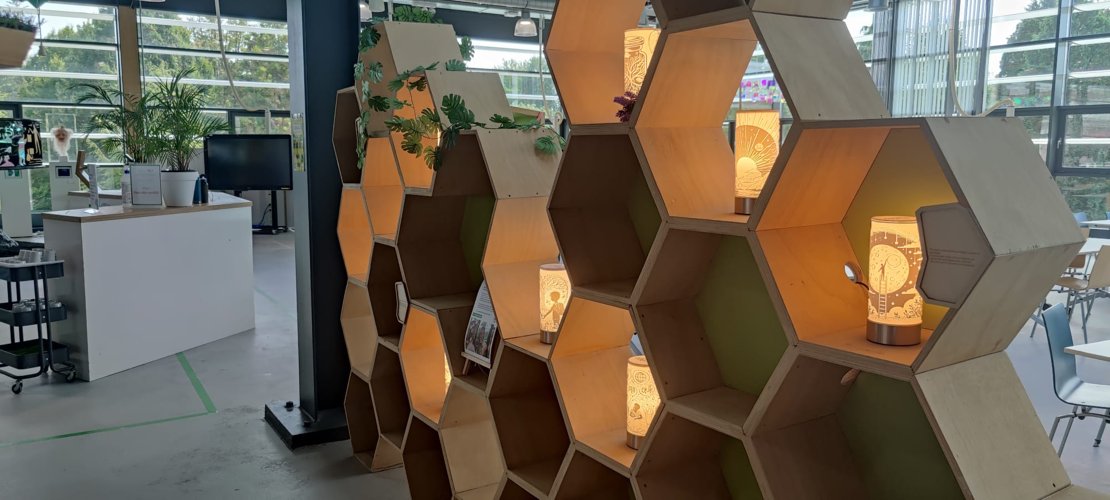
DesignLab congratulates the community for wanting to be, becoming and being the change makers of tomorrow at DesignLab for 10 years now! We could design a birthday card that has our age on it, and write about all the things that we are proud of. But being the experimental and collaborative ecosystem we are as DesignLab, we asked the community of founders, UT colleagues, researchers, DreamTeam students and partners outside University of Twente to tell their meaningful story. They were asked to put into words what they are most proud of, when thinking about projects and initiatives in the context of DesignLab. They also shared wishes for our future: actions we should take to co-shape the futures we want to live in. Enjoy the content!
Use the filter option on top of the page to select your preferences.
Anke's perfect day in DesignLab is when she sees students working together, prototyping, exchanging ideas and more.
Arjen tells us about a project he did in collaboration with the National Police: The future implementation of police robotics, using a societal-friendly approach, by considering different points of view.
Barend states that we should find new ways to involve citizens in design, knowledge production, research and teaching, as there is so much knowledge in society, that cannot be created at our universities.
Cristina has done a lot as a researcher at DesignLab. She is particularly proud of the development of the Responsible Futuring approach, that she did together with the DesignLab team.
Desirée explains how the Transdisciplinary Master-Insert 'Shaping Responsible Futures' helped Green Hub Twente to further sustain changes within the UT.
DreamTeamers highlight the DesignLab Brew podcast, Batavierenrace, DesignLab Museum in the facility, Wall of Names, and how to keep the community at DesignLab rocking.
DreamTeamers prove that DesignLab is truly a student-driven space: Makers Night, Skill Booster, Tosti Talks, Lightbulb chats, Sustainability and a cardboard laser cutting project.
DreamTeamers highlight some of UTs showcases at Dutch Design Week: The Mini Design Ride, Lightbox (part of 'Connecting Worlds for a Better Future') and 'Design for Transition - What's on your menu?' (AKA 'The Cookery').
Former DreamTeam project coordinator Edo explains what was needed to realise the Neura Automata (AKA 'The EyeCatcher') at TechMed Centre: a gigantic art installation, unveiled by His Majesty King Willem-Alexander.
DreamTeam family members Emiel and Jorik describe what it was like to build an art installation, exhibited during the Amsterdam Light Festival. It was witnessed by a lot of Amsterdam citizens and tourists!
In the ChallengeLAB Twente project, creative makers and thinkers at ROC van Twente, Saxion, AKI ArtEZ and University of Twente work together to tackle societal challenges for the Twente Region.
Erik likes to contribute to the student's goals in the workshops at the DesignLab facility. He inspires students to teach others new skills in the workshops.
Ferenc illustrates that together we are looking at ways to make better use of the powers in society. Let's learn from each other, in the real world. He gives an example of the transformation in the village of Boekelo.
Funda talks about the Rising Water, Safer Shores board game, and the 'Civic and Citizen Science' project that was co-funded by the Province of Overijssel and part of Citizen Science Hub Twente.
Humera states that DesignLab is an important part of the University Innovation Fellows ecosystem. She also thinks that DesignLab has been made possible because University of Twente values interdisciplinary education.
'Connecting Worlds for a Better Future' started with a need for a UT narrative at DDW, and has become an interactive and accessible experience that inspires people to reflect on their potential impact and that of others, on possible futures.
Javier and Funda are both Research Fellows who collaborated with DesignLab, to further develop the Rising Water, Safer Shores board game. They co-designed this board game together with children in India and the Netherlands.
Job was there from the very beginning, when the DesignLab facility was built in the Gallery. 10 years later, he went back to DesignLab and reflected on his time here. What did he learn, that he can still apply today?
The Province and DesignLab have been partners within projects for quite some time. Horizon-2020 project RRI2SCALE and Transforming of policy are two examples, to increase societal impact of research and to give various actors a voice.
When you apply for a trajectory within DesignLab academy, Julieta might present to you some inspiring examples within the topics of smart cities and sustainability transitions. She was also part of the research team of Responsible Smart cities.
Klaasjan mentions educational innovation and the impact the Transdisciplinary Master-Insert 'Shaping Responsible Futuring' has on students and their stakeholders. The programme also received the Dutch Higher Education Award!
Kris highlights the Senior Maker Movement, an assignment from ActiZ. Elderly people were introduced to maker spaces and how these could help to improve their daily lives. It also gained insights into how elderly people perceive it.
Leticia's words show that it is noticable that students are making the DesignLab, which is similar to the UIF programme at Stanford d.school. These two are proud to be partners, also within the Faculty Innovation Fellows network.
Healthcare organisation Sensire had been a stakeholder for the Transdisciplinary Master-Insert 'Shaping Responsible Futures'. Lowie gained new ideas based on the different perspectives presented in 'Who cares in the future?'
The Responsible Futuring approach is used within the DesignLab Academy. It enables participants from different backgrounds to work together on complex challenges, to gain new insights and to look at the challenge in unexpected ways.
Magdalena spent time at DesignLab to get to know more about transdisciplinary innovation. During the UIF meet-up, one of the activities she organised was a walk-shop, where people relied on others and learned to reflect on how they feel about it.
Marcos co-designed a renewed, high fidelity prototype of the Design Your Life-toolkit, enabling young autistic adults to design, create and adapt their own supportive environment, promoting independence and autonomy in everyday life.
Mascha illustrates how the cleaning industry could act when it wants to embed technology in their business process: bring all the different parties involved, employees-managers-employers, and share insights on this point.
Mats tells us about students at the Transdisciplinary Master-Insert 'Shaping Responsible Futures', who go beyond learning skills and theories, and learn more about themselves and the world around them.
RRI2SCALE was the first European project DesignLab contributed to, together with the Province of Overijssel. The DreamTeam was also involved in this collaboration: the students developed the Scenario Exploration System-tool.
DesignLab supports Research Fellows who conduct new research that connects with our focus. Example: the creation of an interface that allows researchers and the public to interact with data from the MX3D bridge in Amsterdam.
Miriam is convinced that a combination of ingredients makes DesignLab whole. From small experiments with external organisations to partnerships with educational institutes worldwide.
Research Fellows of the Robotics and Mechatronics (RaM) group were supported in further development of an automated monitoring system, that distinguishes wound types and monitors the healing process over time.
DreamTeam students prove commitment to meeting sustainability goals on a EU-level and SDG-level. They even received a Green Certificate from Green Hub Twente for making sustainable efforts during the UIF Meet up in 2024!
Two magic ingredients of DesignLab according to Peter-Paul: the freedom that academics received to start something new, and: students being the foundation of what we do. The PHTR-conference: one of many DesignLab projects he is proud of.
In addition to being a DreamTeam project coordinator, Ray was involved in the project 'Co-emerging Intelligence', in which UT and ArtEZ students explored how the future of health might look like.
Roy emphasises the importance of connecting academic and non-academic stakeholders and using each other's knowledge, skills and lived experiences to help make lives easier.
Together with the Province of Overijssel, Sami and his fellow DreamTeamers worked on a tool to simplify the difficult context of the energy vision for 2050. For this, they used the Responsible Futuring approach.
Citizen Science Hub Twente (CSHT) results from efforts within the INCENTIVE project. This expertise centre connects researchers with citizens to projects focused on health, climate and safety. The MEEDOEN platform is part of CSHT.
Vanessa thinks that DesignLab went through a wonderful transition: It's not only researchers from UT that meet each other: we actually reach out to people from all over the world that join us, to work on the great challenges that we are facing today.
DesignLab's integrative way of working, pulling together research, education and innovation, helps address University of Twente's ambition of being a fourth generation university.
When Wiro worked as coordinator EnschedeLAB (now ChallengeLAB Twente), he experienced that a transdisciplinary way of working works on different educational levels.
